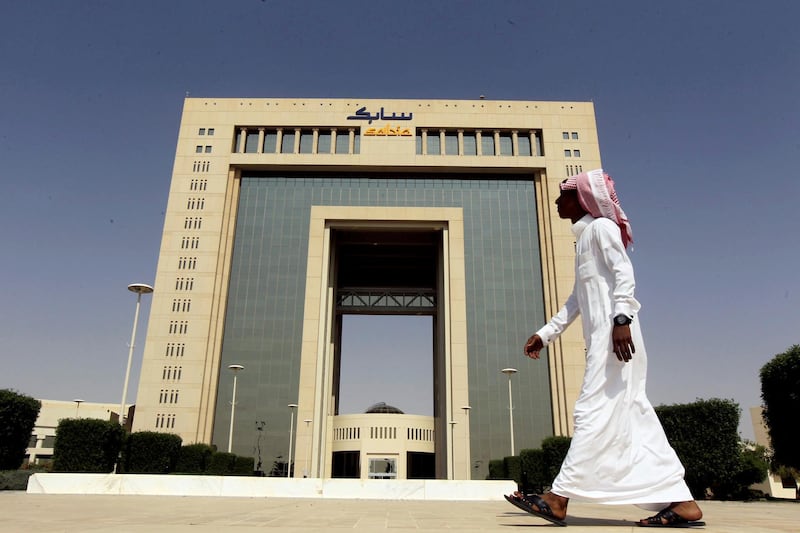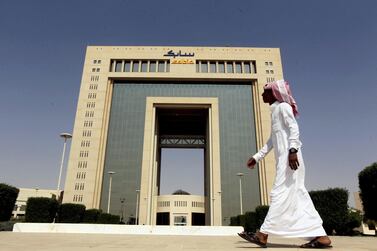Saudi Arabia recorded the highest mergers and acquisitions deal values in the Middle East and North Africa during the first six months of 2019, driven by Saudi Aramco’s acquisition of a majority stake in Saudi Basic Industries Corporation (Sabic), the region's biggest petrochemicals producer.
The kingdom saw a jump in both M&A volume and value as it signed transactions worth $72.6 billion (Dh266.6bn) during the first half of the year, spurred by the $70bn Sabic deal, according to Mergermarket, an M&A data provider.
"Saudi Arabia remains the key market driving blockbuster M&A in the region," Patrick Harris, head of energy and natural resources at Mergermarket, said. "The behemoth majority acquisition of Sabic by Saudi Aramco, a shift away from upstream oil and gas, is indicative of how the kingdom’s economic and social reforms have filtered through to the deal making and investment landscape."
The value of M&A in Mena climbed to a record $112bn in the first six months of the year, financial data provider Refinitiv said in a report in July.
The kingdom's initial public offering market has seen a pick up in activity during the first half, compared to the limited number of deals in the last few years.
The country announced IPOs worth $752 million spread across three offerings, its highest value generated through market listings since 2015, according to Mergermarket data.
The IPOs included the listing of the real estate business of shopping centres firm Arabian Centres Company, worth $659m; Maharah Human Resources Company, worth $207m; and Ataa Educational Company, valued at $93m.
"With a raft of slated privatisations, or part-privatisations, under review, a number of potential investment targets will likely come to market, whether through stake sales or IPOs, such as that planned for Saudi Aramco," Mr Harris said.
Saudi Arabia is transforming its economy under its overarching Vision 2030 programme, which includes managing public finances, developing alternative lines of revenue through taxes, selling stakes in some state-owned entities and expanding the country’s non-oil industrial base.
"Looking ahead, with the Saudi Aramco IPO on the horizon and a number of other important M&As in key industries in the pipeline, we expect this to encourage further IPO activity and fuel new investments and greater liquidity for the region as a whole, as companies look to drive more value through consolidation," Campbell Steedman, managing partner for the Middle East at law firm Winston & Strawn, said.
Project finance has also been active in the kingdom over the last 18 months, with big projects in water, energy and renewables sectors set to reach financial close for funding.
“Foreign interest in Saudi projects has grown sharply, as the kingdom seeks to finance ambitious infrastructure and privatisation programmes," Chris Haffenden, a project finance expert at Acuris said. "The deal pipeline includes a number of water, waste and desalination projects, with pilots also due in healthcare and education."
Saudi's sovereign wealth fund, known as the Public Investment Fund (PIF), is developing a $500bn mega-project, Neom, a futuristic smart city on the Red Sea Coast the size of Massachusetts.
"Advisors are already salivating over potential mandates," Mr Haffenden noted.







